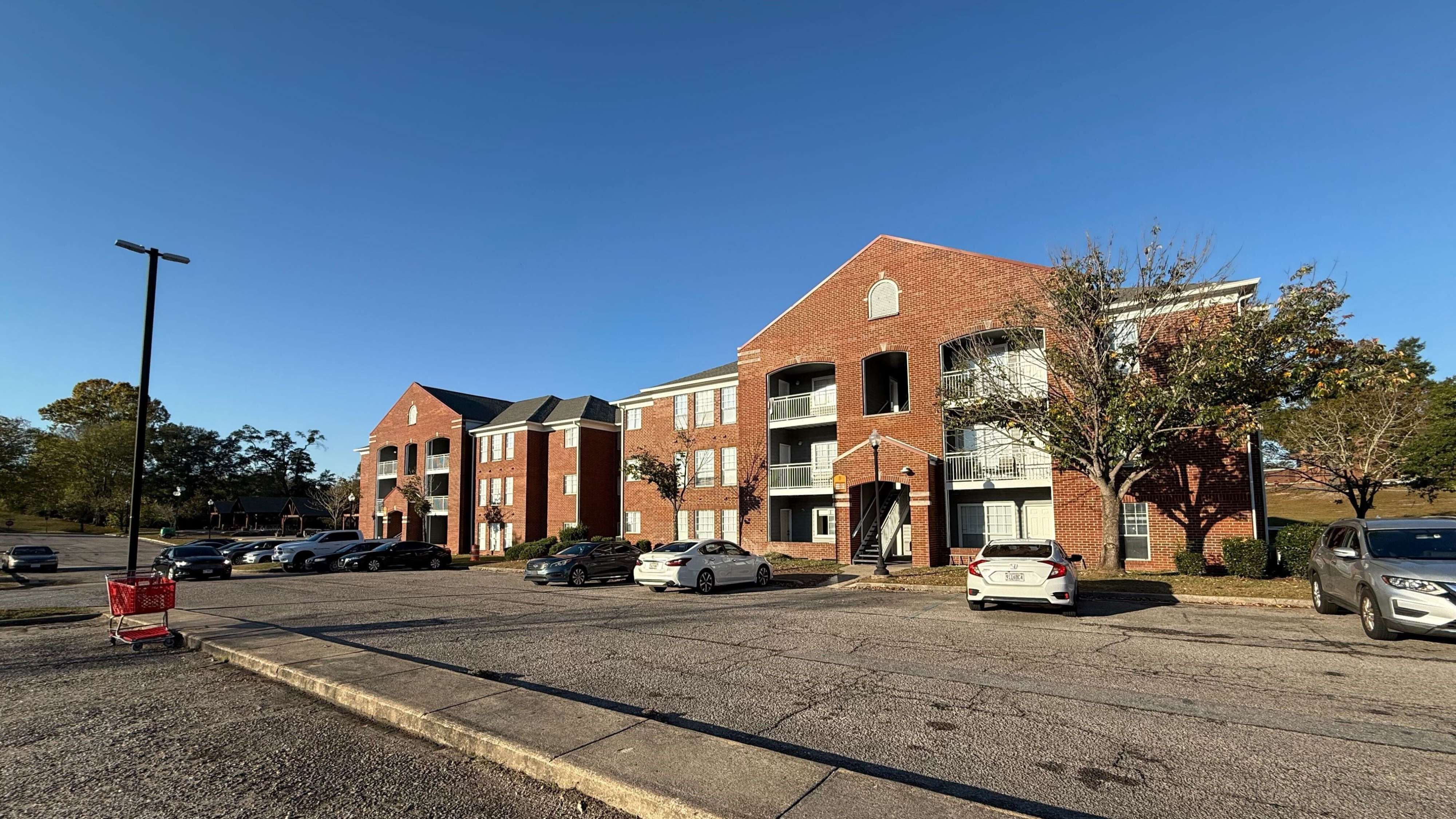‘Tuskegee has changed:’ Students share shock, horror over deadly homecoming shooting

The Lincoln Gates, the main entrance to Tuskegee University, were a sign of safety and home during my college years. From the first time I stepped on the campus in 2012, Tuskegee felt like a welcoming space.
Now those gates, for the first time, are closed to the public.
Hours after the best “return of home” experience I’ve had, celebrating the school’s 100th homecoming, the school became known not for that milestone but for a shooting.
A mass shooting. One person died and 16 people were injured.
“I was in the middle of the shooting, and my friends and I ran to hide behind the dumpster. Then we ran to Campbell Hall to hide. I’m still recovering from seeing the covered up body from the guy that was killed. I’m still processing that it could have been me,” said Evyn Thompson, a 2024 graduate.
I ended my homecoming festivities around 1:15 a.m. on Nov. 10 by leaving a different campus party. I stopped at a nearby food stand and as I awaited my meal I saw several police cars rush in the direction to campus.
I didn’t know about the shooting until I was preparing to go to sleep at an AirBnB in Montgomery. My heart dropped when I heard the news. I immediately called my brother and sent out texts to all my friends to make sure they were okay.
Thankfully, they were. But Tuskegee has changed.
Homecoming at HBCUs aren’t just about the football game, tailgates, and parties. It’s the place for alums from all over the nation to come “home” not only to celebrate the place that has helped define their lives, but also a celebration of institutional sustainability in a country that outlawed Black people from learning how to read to now seeing Black history being stripped from school curriculum.
At Tuskegee, we celebrate homecoming with an immense sense of school pride. Just about everyone wears their most fashionable outfits in the school colors, crimson red and old gold. Cell phone service drops as soon as we enter campus because thousands of people are crammed into the football stadium, and yet we still find each other to share drinks, food and pictures. We reconnect with people we haven’t seen since we last sat in a classroom together or if we’re lucky enough, we meet other alums that turn into new lifelong friendships.
A shooting is certainly not the first time Tuskegee has been discussed nationally. Tuskegee University gave the world the Red Tails, the first Black aviators to fight in World War II. The university was recognized as a National Historic site in 1974. Two decades later, President Bill Clinton would issue a formal apology for the federal government’s involvement in their role in the syphilis study experiment that lasted for nearly 40 years and gift the university the Bioethics Research Building.The university also bred nationally recognized talent like Lionel Richie and Tom Joyner. And those historical facts still only scratch the surface of what Tuskegee has brought to the world.
The university even celebrated that the football stadium finally has lighting. Something that has been an inside joke about Tuskegee among HBCUs for decades, but something that the alums were tirelessly advocating for. Supreme Court Justice Kentanji Brown Jackson recently visited the school, as it’s where her mother earned a degree. And Sen. Katie Britt just secured over $5 million for the university’s aviation and aero technology program. Not to mention, it was recently ranked as one of the top schools in Alabama and in the United States.
But a mass shooting is what has dominated the headlines about Tuskegee in the last month. Booker T. Washington and George Washington Carver’s remains lay at rest just 200 yards away from where bullets flew across the parking lot of the West Commons apartments.
“There were at least 500 people out there,” said sophomore Tuskegee student, Janiah Rutledge, of the late-night party where the shooting took place. “When I first got there I was in the middle of the crowd, but then I moved to the back because I didn’t feel comfortable. I felt like something was going to happen.”
Rutledge claims that there were a lot of unfamiliar faces at the party.
“I was getting red flags the whole night, but I didn’t want to leave my friends. There were a lot of unrecognizable faces, that’s what made me the most nervous,” she said.
There was a town hall meeting with students and university administration on Nov. 11.
During the meeting, according to a video reviewed by AL.com, student Marquez Cowins said, “Our voices are going to be heard. The fact of it is, we just want immediate change now. If you can’t give us immediate change now, send us home.”
HBCUs around the country recently have reported violent threats and safety incidents. In 2023, a shooting took place at Tuskegee. No one was hurt or killed.
Some students felt as if the university should have implemented better security measurements then.
“A lot of people feel like Tuskegee never wants to change anything, and they don’t listen to their students. That’s the main thing that people feel right now, and that we’re going to have to keep fighting the administration in order to get a change,” Rutledge said.
On Nov. 14, the private university held a news conference about new security measures such as closing the campus to the public, hiring additional officers for 24/7 security, implementing metal detectors and adding 500 cameras around the university grounds.
“The entire campus will be lit,” said Mark Brown, who became Tuskegee’s 10th president in July.
At the news conference, I asked Tuskegee’s communications director about previous security protocol for “unauthorized” campus parties. I didn’t receive an answer.
The crowds inside the stadium for homecoming and the game were packed with tens of thousands of people. To me, it felt more crowded than usual.
Brown said he made a video to clearly state the university’s clear bag security policy and prohibitions against drugs and weapons on campus. He said there were entry checks at all officially sponsored events, some random and some 100% checks.
“However, the general campus remained open and we did not, nor could we have planned for security at an event that was not approved in advance or officially sanctioned by the university,” Brown said.
Students returned to campus on Nov. 18 with very heavy police and security presence.
On Nov. 19, the family of La’Tavion Johnson, who died in the shooting, sued the university, saying officials hadn’t properly secured the campus.
Thompson said the shooting has left her traumatized.
“They make it seem like it’s the students’ fault for having a party. When we could have still had a party and been safe. Because we’ve had plenty of parties and nothing happened. So why is there a mass shooting happening now? But it’s our fault that the shooting happened,” Thompson asked.
Despite feeling that her mental health has declined, she said she still loves Tuskegee, despite the tragedy that took place on campus.
“I don’t hate my school. I love my school regardless of the stuff that happened. I know Tuskegee is not a bad place to be. It’s just that stuff happens there,” Thompson said.
Cody D. Short is a 2015 graduate of Tuskegee University. She is a reporter for AL.com.
©2024 Advance Local Media LLC. Visit al.com. Distributed by Tribune Content Agency, LLC.


